Balance your “body budget” through movement, thoughts and relationships
4I went skiing over the winter break and since I don’t do it very often or very well, every day on the slopes took a lot of effort. I could feel my body mobilizing its resources before every run: my heart rate would go up, I could feel increased circulation to my limbs, my breathing would become faster – all of the signs that you would associate with stress-response, or sympathetic nervous system activation (fight-or-flight). Yet I wasn’t particularly stressed, just ready to move. This type of response would give me a surge of energy to make my way down the mountain. Then as I rode up to the top of the mountain on the chair lift I could relax, enjoy the stunning views and soak in the quiet majesty of the mountain.
I think this example perfectly represents the actions of our autonomic nervous system. When you prepare to be active you need to mobilize your resources, so your body speeds up the heart rate, dilates the blood vessels, dumps cortisol into your blood stream to give you an energetic boost (sympathetic activation, fight-or-flight mode). This is like pressing a gas pedal in your car. When you need to slow down, you “put your foot on the break” shifting into rest-and-digest mode, which slows your breathing, decreases the heart rate, reverts the blood flow from exercising muscles to your digestion, and so on.
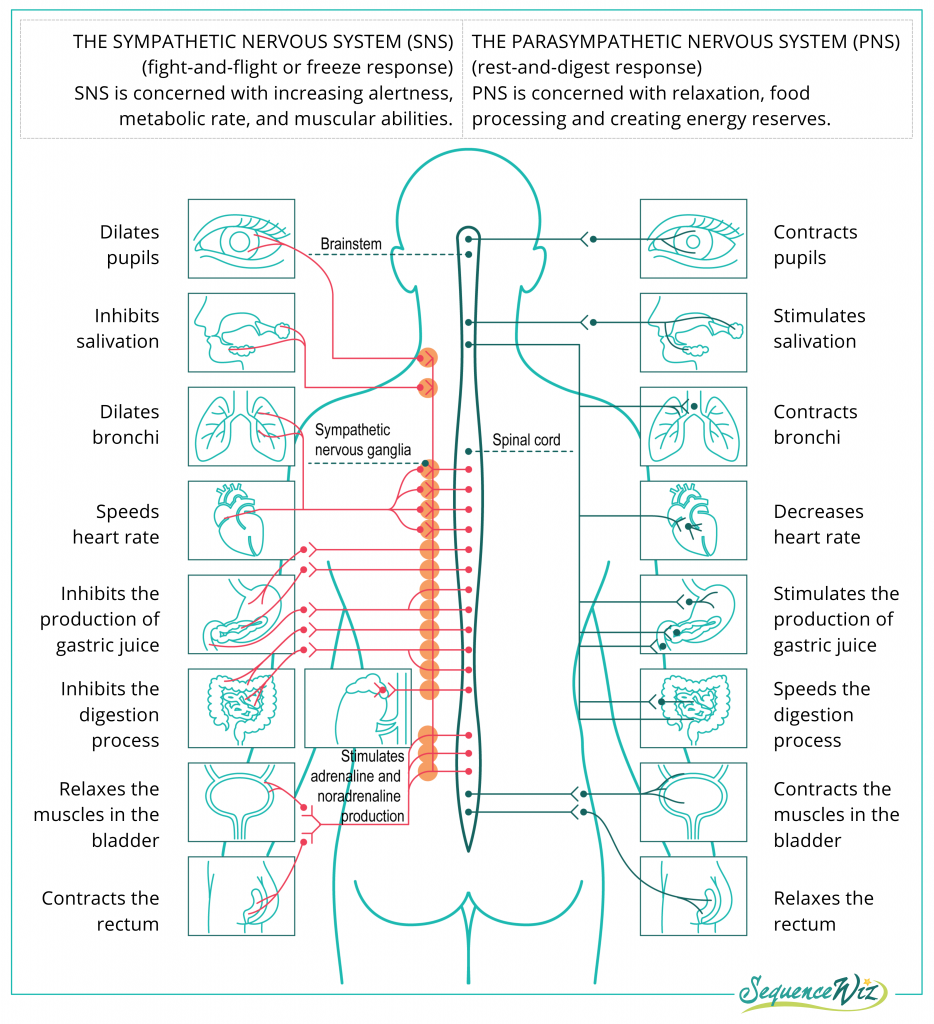
As you drive your vehicle of a body throughout the day your foot is always either pressing on the gas pedal or applying the break, experiencing some of the related physiological shifts outlined in the diagram above. All those physiological shifts either deplete your energy or regenerate it. We can think of it in terms of your physiological “body budget”. Everything you do in your daily life acts either as a deposit toward the body budget or as a withdrawal.
When your brain anticipates something physically challenging it makes a withdrawal from the body budget to enable you to rise up to the challenge, like it did every time I was about to ski. But I could get the same physiological reaction if I just anticipated skiing without doing any actual movement. Lisa Feldman Barrett reports that if you recruit a bunch of volunteers and have them look at the pictures of animals, flowers, babies, food, money, guns, surfers, skydivers, car crashes, and other objects and scenes, “these pictures impact their body budget; heart rates go up, blood pressures change, blood vessels dilate. These budgetary changes, which prepare the body to fight or flee, occur even though the volunteers are not moving and have no conscious plan to move.”(1)
It’s long been known that anticipating a stressful event makes you feel stressed and anticipating an upcoming fun trip makes you happy; but now science confirms that simply thinking about ANY object, event or scene changes your physiological state and can either drain your energy or replenish it. “Based on these and hundreds of other studies, we now have good evidence that your brain predicts your body’s responses by drawing on prior experiences with similar situations and objects, even when you’re not physically active.”(1) For example, if you know how a specific yoga practice makes your feel, just going through it mentally without any physical movement will have a similar physiological experience in your body.
In addition, other people impact your body budget as well. “When you interact with your friends, parents, children, lovers, teammates, therapist, or other close companions, you and they synchronize breathing, heart beats, and other physical signals, leading to tangible benefits. Holding hands with loved ones, or even keeping their photo on your desk at work, reduces activation in your body-budgeting regions and makes you less bothered by pain. If you’re standing at the bottom of a hill with friends, it will appear less steep and easier to climb than if you are alone. […] In contrast, when you lose a close, loving relationship and feel physically ill about it, part of the reason is that your loved one is no longer helping to regulate your budget. You feel like you’ve lost a part of yourself because, in a sense, you have.”(1)
Your physiological balance constantly fluctuates responding to the energetic demands of the activities you are about to engage in, of events that you anticipate, images that you conjure in your mind, and people that you spend your time with. “Every person you encounter, every prediction you make, every idea you imagine, and every sight, sound, taste, touch, and smell that you fail to anticipate all have budgetary consequences and corresponding interoceptive predictions.”(1)
This is important to recognize because your physiology both dictates the way you feel from moment to moment and also because negative balances and surpluses in your body budget can lead to disease. Are you aware of those physiological fluctuations in your daily life? Do you have enough energetic deposits to balance out the withdrawals? We will investigate it next time – tune in!
[jetpack_subscription_form]Resources
- How Emotions Are Made: The Secret Life of the Brain by Lisa Feldman Barrett


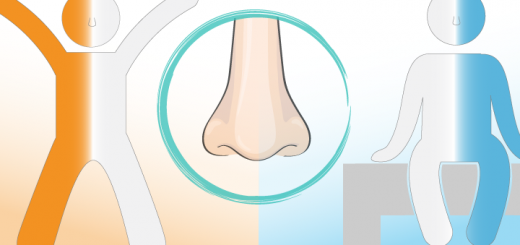

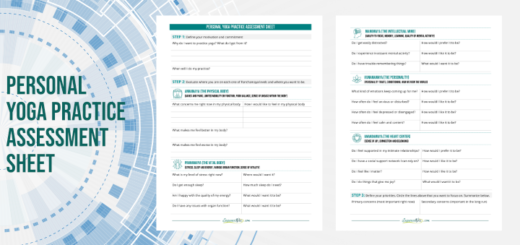













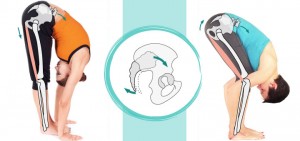
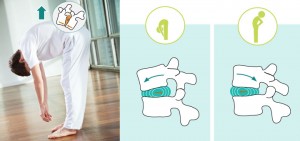
what a great article! seriously, i look forward to every one.
Awesome post Olga! I “practice” yoga all the time when I’m preparing for teaching – nice to know there is a benefit! Love your blog and your App! I’m using your Chair Yoga to help my 82 year old mother-in-law get back on her feet after some health issue. Thanks, Darlene.
Love all the great information you impart, Olga! And the app is so useful to my Yoga Therapy practice. Thanks for all you do! (and worth every penny we pay for it)
You presented fantastic overview here Olga. I just finished reading How Emotions are made by Lisa Feldman Barrett. It’s such a wonderful book. One must read and follow the simple tips given in the book to live stressfree life. My wishes to you.